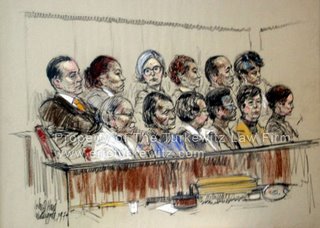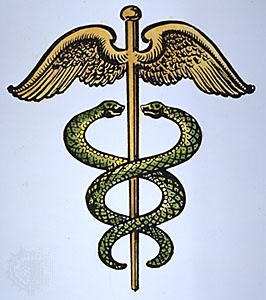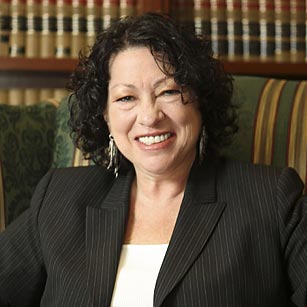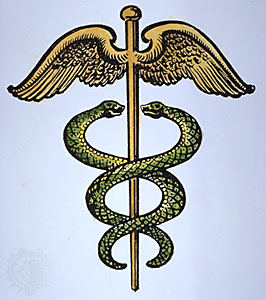 There is no way to get around it: If you try cases for a living you will lose some. That’s just the way it is. But it’s not exactly the stuff you would read on someone’s website or firm brochure. Writing about your losses is the biggest taboo there is.
There is no way to get around it: If you try cases for a living you will lose some. That’s just the way it is. But it’s not exactly the stuff you would read on someone’s website or firm brochure. Writing about your losses is the biggest taboo there is.
So I guess that’s what blogs are for. While someone at some point must have written on what it is like to lose a trial, I surely can’t find it. So, taboos be damned, here goes.
First off, there are different ways to lose a case. It could be the failure to present a bit of evidence. It could be a judge looking to torpedo your case or an unethical opponent. A pure question of fact (who had the green light?) could do it. Or just a case improvidently brought.
But there are times when, even after losing, you look back and say you would take the same case again. Because you still believe in it. Those are the gut-wrenching ones. The clients you felt for. The righteous battles. The ones that left you up every night with a pad and pen by the bedside and your heart ultimately on the courtroom floor when the jury came back.
One such trial still haunts me, a breast cancer case from 17 years ago that I was asked to try for another firm. The facts were simple: A woman in her late 20s felt a lump and her doc said not to worry about it. A year later it was still there, and by then it was too late. She had a mastectomy a month before she was married. She was young and vivacious and the picture of the girl next door. Except that she was dying. The cancer had spread and we all knew she would be dead within a year of the trial. And she was.
There was no problem with the evidence. No problem with the experts. A cross-exam of the defendant that, if I were doing it again, I wouldn’t change at all. And if I wanted to somehow stop my voice from catching and cracking during summation, I wouldn’t be able to if I tried. It was that kind of trial. It was, when all was said and done, a pure issue of fact as to what happened in a doctor’s office on a particular day.
I wanted to ask the jury what piece of evidence had influenced them. I wanted to learn for the next time so I would not leave another client heartbroken. But after several anxiety-filled days of deliberations, and a jury forewoman in tears when the verdict came back at the end of a long day of waiting, it was not to be. They refused to talk to us. In fact, they sent word through the court officer that they wouldn’t even come out of the jury room that they had returned to until everyone involved had left the courthouse.
If I had the choice of trying any case again, it would be that one. It’s the one I want back more than any other, and it has nothing to do with the time and money that went into it. Even 17 years later I can still feel that loss.
And no, you won’t find it on my website. Over there you will find the good stuff, and the legalese required by New York ethics rules that past results don’t guarantee success for future cases. Nobody puts a loss on their website. Nobody jokes about “coming in second.”
The only way to avoid losses, of course, is not to try cases. And such a “trial lawyer” would then join the ranks of those known to be afraid of the courtroom, and thus, people who will settle cheap. Alternatively, one can also have such a high volume of business, or be so unable to handle the stress, that clients no longer exist. One old-timer I know said he had no clients, only files.
Criminal defense lawyers, I imagine, face some similar issues. Unlike the personal injury lawyer, though, the criminal defense lawyer will (usually) get paid, and hopefully not with chickens or other barter. Their clients naturally face substantially different risks of losing. Some of them deserve it, and the lawyers know it. Others may have been over-charged by prosecutors, or had rights violated, or have desperate families at home, any one of which may provide that emotional motivation needed to push counsel forward even harder than they otherwise might, and which can also crush you in the end.
If a criminal defense lawyer has all of his clients plea out, then, like their counterparts in the civil world who would rather settle for 40 cents on the dollar than try a case, they will sleep at night and not have to worry about ever losing. Some lawyers, it seems, simply do not care enough about the human that is their client, and therefore may not try as hard as they should.
And then there are the heroes of the legal world: The defenders in death penalty cases where there is no doubt about the guilt of the accused. And the defense lawyer accepts the scorn and contempt of the community for defending a monster in exchange for the honor of standing up for a principle: whether governments should mete out death. Losing has an altogether different meaning in that context.
I’d like to think there is some moral or happy end to this post, but I can’t find it. A gut-wrenching loss — where you were unable to help your client despite all of your best efforts — comes with the territory when you step into the well of the courtroom. And it hurts like hell, sometimes for years. Such is the nature of law practice for anyone that cares about the client. Walking the high wire without a net, and that is often what trying a case is, is an environment that isn’t for everyone, and the level of burnout (and, perhaps, alcohol consumption) is high.
Of course, having such experiences would be a good thing to see in a potential judge, as I discussed in the The SCOTUS Nominee and The Tissue Box Test. It would bring a depth of diversity and understanding that those who made it to the bench straight from the ivory tower don’t generally have. So in the judicial sense, at least there would be lessons of some type that might be applied elsewhere. But that is just philosophy. It doesn’t help me in the trenches.
I don’t know where these ruminations will lead, if anywhere. But I’ve spent a bit of time looking at other web sites as I wrestled with my unhappiness over my own, and I know that losing is the great elephant in the room when it comes to legal marketing. For every one of those victories that lawyers talk about, someone else went down to defeat. Of course, it’s never discussed, and understandably so.
I will leave it to others — if they care to write about a loss, and I don’t blame anyone for staying silent on it — to follow-on with this thread if they so choose.
——————————
Updated:
- Ron Miller posted on what it’s like to lose back on July 13, 2007.
- Mark Bennett posted Losing Sucks on 1/21/2010
- Norm Pattis posted Baseball, Mountaineering and Trial on June 4, 2010, including this:
It has not been a good year for me. I had a run of guilty verdicts unlike any I have ever had before. I lay in bed at night wondering whether I’m washed up, or whether I’ve become too arrogant to be trusted by jurors. In each case I tried this past year, I was able to accomplish what I wanted to do with the evidence. But the evidence, well, it kept on coming against client after client, a tsunami of grief that buried my clients and my ego.
Links to this post:
POSTS WILL RESUME SHORTLY
It seems like I’ve been saying that alot. I’ve been busy. For some reason these past few months have been full of assignments, projects, and two line emails that require two hours of work. Court has been especially busy as well. …posted by . @ June 13, 2009 5:01 PM



